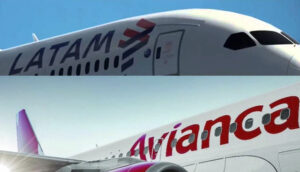The European Pilots Association (ECA) has launched a campaign against the proposal, which is being evaluated by the European Union Aviation Safety Agency (EASA). The initiative proposes that commercial aircraft be allowed to fly operate with a single pilot on certain flights, a measure that the ECA considers dangerous for the safety of passengers. “Pilots don’t just fly an aircraft: we monitor each other and all aspects of the flight, manage the aircraft’s automation and quickly address any safety, security or operational risks in a highly complex and rapidly evolving environment,” EASA President Otjan de Bruijn said in a statement.
Under the name of “Extended Minimum Crew Operations” (eMCO), this proposal has been promoted by aeronautical manufacturers, who argue that technological advances allow for cruise phase of flightless demanding than the takeoff and landing phases, the aircraft cockpit can be operated by a single pilot. Proponents of this proposal argue that this would allow one of the pilots can rest during those hours without the need for a substitute in the cockpit. In addition, the expansion of “Single Pilot Operations” is being considered, where a single pilot would operate the aircraft for the entire flight.
The European Pilots Association (ECA) warns that these proposals could lead to aircraft flying with a single pilot from 2027. In response, it has launched an online campaign “OneMeansNone.eu“to inform citizens about the “significant security risks” that, in his opinion, these measures would entail.
A human need in supervision
:quality(85)/cloudfront-us-east-1.images.arcpublishing.com/infobae/NDHX2PXQGNAM5JROI6HKMEDFJY.jpg 420w) A plane
A planeAviation commanders have stressed that the presence of two pilots in the cabin of a large commercial aircraft is essential for the safe operation of the aircraft. Allowing “one pilot to leave the cockpit for several hours during the cruise phase of the flight, while the other remains at the controls,” would complicate the management of complex tasksThese include cross-checking, mutual support between pilots and emergency response, which are critical to maintaining flight safety.
“Although technological advances and automation have improved flight safety and efficiency in recent decades, human supervision of these systems, which are prone to failure, remains primordial“The pilots argue, insisting that human intervention is crucial to handle unforeseen situations and technical problems that may arise during the flight.
In addition, the pilots believe that the proposal could “increase the profits of aircraft manufacturers” like Airbus and Dassault, but “it won’t make flights cheaper or safer for passengers.” They point out that cost reductions won’t necessarily translate into lower fares for travelers, and could compromise safety, a non-negotiable aspect in commercial aviation.
On the other hand, aircraft manufacturers argue that the initiative would not only save costs, but also address the growing crew shortage flight. They argue that reducing the crew during the cruise phase could optimise resources and address staff shortages without compromising safety.
For the proposal to move forward, it needs the approval from the European Union Aviation Safety Agency (EASA) and subsequently the approval of the International Civil Aviation Organization (ICAO), the airlines and their unions. This process involves a rigorous Analysis and evaluation of risks to ensure that any changes to regulations do not compromise the safety of commercial flights.




